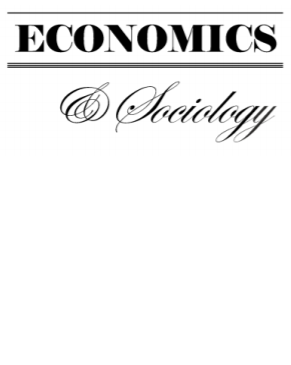THE ECONOMICS OF HAPPINESS: AN APPROACH TO PORTUGUESE ECONOMY
THE ECONOMICS OF HAPPINESS: AN APPROACH TO PORTUGUESE ECONOMY
Author(s): Sandra Cristina Ribeiro, António Duarte SantosSubject(s): National Economy, Micro-Economics, Welfare systems
Published by: Fundacja Centrum Badań Socjologicznych
Keywords: Economics of Happiness; Gross Domestic Product; World Happiness Index; Portugal Well-being Index;
Summary/Abstract: One of the major motivational sources humans have is feeling happy. The issue of Happiness has been studied since Ancient Greece. Recently, though, this has become a research topic in social fields such as Economics. In the past three decades, studies have been made on Happiness in the frameworks of Economics. However, not many of them concerned the Economics of Happiness, since it is a relatively new research field. Thus, our study aims to present a literature review that includes references to the main factors behind the increase of happiness, as well as the relation between economics and happiness. We also offer our own validity analysis methodology in which Gross Domestic Product (GDP) is considered as an indicator of excellence representing the population’s satisfaction level, evidencing the restraints and limitations to national income. We will describe the elements of the Well-Being Index of Portugal for 2004 to 2017 and link them to the country’s position in the World Happiness Index and in the world GDP. Considering that national wealth is one of the elements in the analysis of Happiness, there is a positive relation between the two variables in the referred time span. However, our analysis has led us to discover other variables, more relevant for the analysis of the happiness level and thus the results are debatable.
Journal: Economics and Sociology
- Issue Year: 12/2019
- Issue No: 4
- Page Range: 197-212
- Page Count: 16
- Language: English

